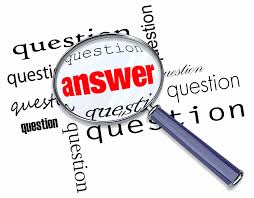记忆方法
将“answer”联想为“an swer”,想象有一个人(an)站在那里(sway),他在回答问题,形成一种动态的记忆画面。
以上内容由AI生成, 仅供参考和借鉴
中文词源
answer 回复
前缀anti-, 相对。词根swer, 发誓,见swear. 原指法律用语,发誓没干过某坏事,指控不实。后词义转化为回复,答复。
ant 蚂蚁
词源略。
英语词源
- answer
-
answer: [OE] Etymologically, the word answer contains the notion of making a sworn statement rebutting a charge. It comes from a prehistoric West and North Germanic compound *andswarō; the first element of this was the prefix *and- ‘against’, related to German ent- ‘away, un-’ and to Greek anti-, source of English anti-; and the second element came from the same source as English swear.
In Old English, the Germanic compound became andswaru (noun) and andswarian (verb) ‘reply’, which by the 14th century had been reduced to answer. The synonymous respond has a similar semantic history: Latin respondēre meant ‘make a solemn promise in return’, hence ‘reply’. And, as another element in the jigsaw, Swedish ansvar means ‘responsibility’ – a sense echoed by English answerable.
=> swear - answer (n.)
- Old English andswaru "an answer, a reply," from and- "against" (see ante) + -swaru "affirmation," from swerian "to swear" (see swear), suggesting an original sense of "make a sworn statement rebutting a charge." A common Germanic compound (cognates: Old Saxon antswor, Old Norse andsvar, Old Frisian ondser, Danish and Swedish ansvar), implying a Proto-Germanic *andswara-. Meaning "a reply to a question," the main modern sense, was present in Old English. Meaning "solution of a problem" is from c. 1300.
- answer (v.)
- Old English answarian "to answer;" see answer (n.). Meaning "to respond in antiphony" is from early 15c.; that of "to be responsible for" is early 13c. Related: Answered; answering. The telephone answering machine is from 1961.
权威例句
- 1. "I can't give you an answer now," he hedged.
- “我现在不能回答你,”他闪避道。
- 2. Two historical questions — you can answer them how you like.
- 两个历史问题——你可以随便回答。
- 3. Two men answer-ing the description of the suspects tried to enter Switzerland.
- 与描述的疑犯样子相符的两名男子试图进入瑞士。
- 4. He grimaced slightly, obviously expecting no answer to his rhetorical question.
- 他微微皱了下眉头,显然并不期待任何人回答他的反问。
- 5. I don't quite know what to say in answer to your question.
- 我不太清楚如何回答你的问题。

